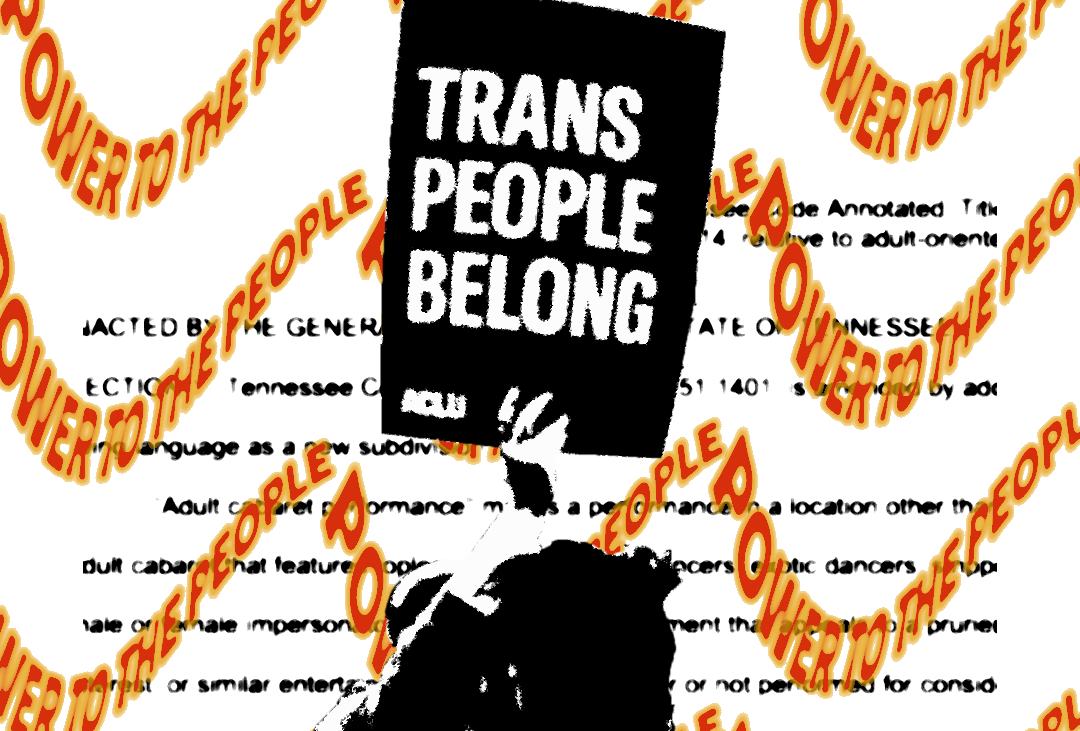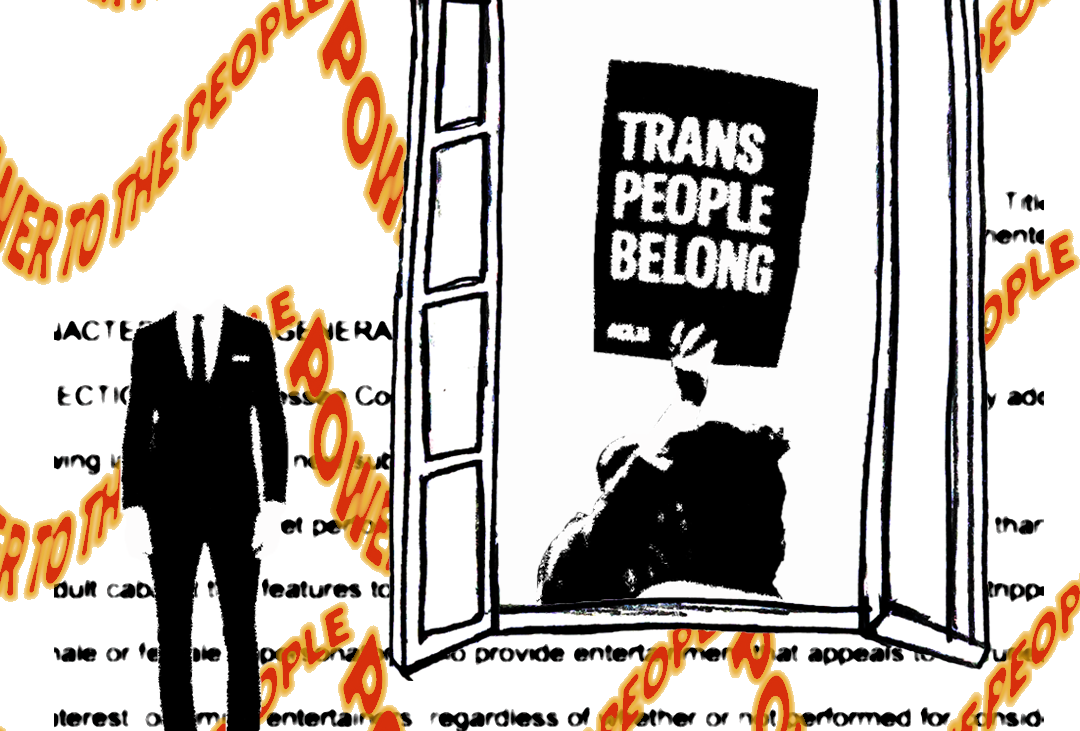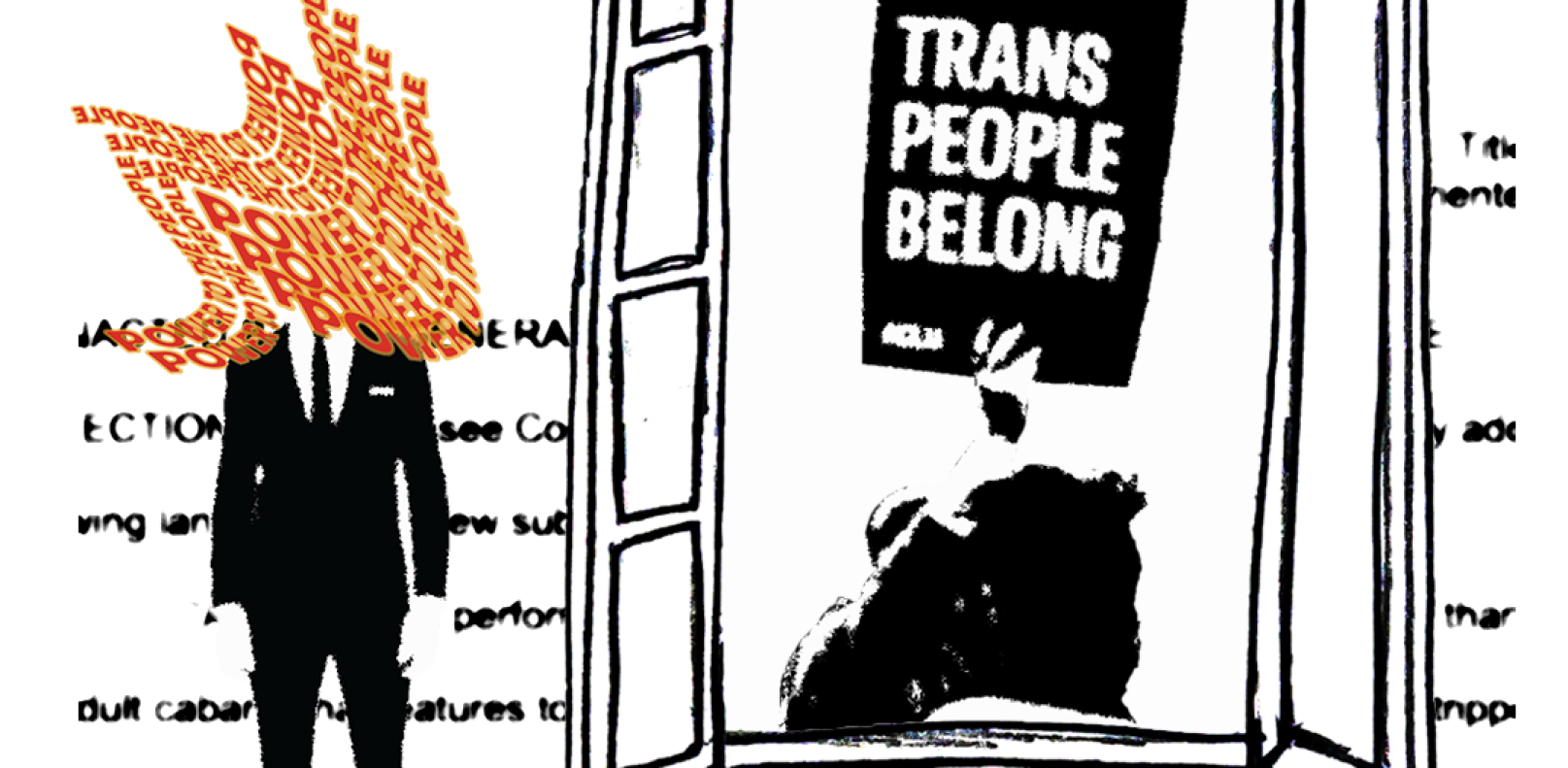I
“Oh, but think of the children!”
On December 23rd, Tennessee’s House of Representatives passed House Bill 09, one of numerous laws being proposed around the nation criminalizing crossdressing that have come to be known as “drag bans.” The bill was signed by the governor on March 2, going into effect on July 1. While Tennessee is the first to sign a bill like this into law they are not alone in their targeting of drag; bills have been proposed in at least 14 states, including Texas, West Virginia, and Missouri. Arkansas has passed its own drag ban as well. These bills come in the wake of sweeping fear mongering from the Republican Party, painting drag artists as dangerous groomers and sexual deviants who are indoctrinating children into the gay agenda; as predatory agents of the transgender craze seducing your children.
This is in the wake of the mainstreaming of drag. “RuPaul’s Drag Race” is one of the most popular reality tv shows, and with it drag has become more and more visible in the public eye. Drag queens are guest starring in movies and ads on network TV; they’re backup dancing for your favorite pop star. Events like drag queen story hours, something as innocent as a man in a dress reading a picture book to elementary schoolers, have become sites of political outrage and protest, and the Republican Party has seemingly unified and mobilized in their attack against drag artists.
Tennessee in particular has a bustling drag scene in its capital, Nashville. Numerous drag artists with nation-wide renown have gotten their start there: queens like Eureka O’Hara, star of HBO’s “We’re Here”; Kameron Michaels, who went on to have a “RuPaul’s Drag Race Live!” Vegas residency; and Brooke Lynn Hytes, the host of “Canada’s Drag Race.” While these laws wouldn’t outlaw drag outright, they would prohibit drag from being done in public, or anywhere where a minor might see them. These laws target queer artistic expression and bar it from entry into the public eye, under the guise of “protecting children” from being exposed to “explicit content.”
As someone who follows numerous drag artists religiously, I’ve watched drag queens, both local to Richmond like Identity Crisis, and more famous queens with nationwide notability speak out against this legislation. One such queen is Sasha Colby, a transgender woman, drag artist, and a frontrunner on the current season of RuPaul’s Drag Race, who spoke candidly on the show about her introduction to drag as a teenager.
“I was really fortunate to enroll in dance when I was in high school. I was a closeted Jeohvah’s Witness, scared to tell anyone how feminine I was and that I already felt trans, and my queer family, who are all dancers, took me in, took me to my first drag show, and it saved my life. And it’s made this life such a joy to live.”
Teary eyed on the main stage, she discussed how, as a teenager, drag saved her life. Under Tennessee’s drag ban, this would be illegal.
II
Prurient Interest
House Bill 09 defines the drag that it outlaws as “male or female impersonators who provide entertainment that appeals to a prurient interest.” This broad definition of drag allows for numerous interpretations of how this law could be violated, interpretations that will not just include drag queens, but transgender people as well.
We live in a world where trans women are seen as sexual predators, the same way that this bill and the culture around it characterizes drag queens. Trans women who aren’t cis-passing, or are fresh out of the closet, or just exploring their newfound access to femininity, could be seen as violating this law. The first offense is a misdemeanor, and the second offense is a felony. Under these new laws trans people could be convicted felons for just walking the street looking like themselves. Within this bill is the capability to criminalize being transgender, to turn our very presence into a crime.

Medical transition is being targeted too. Mississippi, South Dakota, and Tennessee have banned gender affirming health care for minors. Oklahoma’s house of representatives passed a bill, currently circulating in the senate, that would ban health care providers from covering the costs of medical transition, which are usually expensive, for anyone, minor or adult, effectively creating an undercover ban. In Arkansas, a bill has been passed by the Senate and is currently being reviewed by the House, which would ban transgender people from using the bathroom at the same time as a minor.
These are just a few of the bills circulating through the legislature throughout the country. According to the ACLU, there are 322 anti-LGBTQ bills advancing on top of an additional 19 that have been recently introduced.
These bills operate under the guise of protecting minors, but their true goal is to restrict our lives further. They make it nearly impossible to access medical transition; forcing us to pay out of pocket for life-saving medication. They don’t want to have to see us; they don’t want to think about us. They want us gone from parks, restaurants, libraries, schools and bathrooms. They won’t even give us the dignity of taking a shit in the same room as them. At best, they exist to cut us out of public life. At worst, they seek to criminalize our very existence.
These bills use veiled language to attempt to mask the true content of the bills, but in community, we have never been fooled. The goal is not to protect children. The goal is for transgender people to not exist.
III
A Wilting Flower
In my time as a writer, I’ve spoken very candidly about my experience as a trans woman. In my “Euphoria” article I expressed disappointment and anger about the fetishization of trans women. In my piece, “A Flower in Full Bloom,” I detailed my own transition narrative. I’ve written directly about what being transgender means to me. The joy from those experiences, as well as the anguish; but I struggle to find a silver lining here. As I watch a virulent and vengeful push to take away the rights of my community, I struggle to find my footing. It’s maddening.
On countless nights I’ve broken down into tears, the weight of this burden bearing too heavily on my soul. I’ve relied far more than I’d like to on my close friends and my partner, asking them to talk me down and hold me together as I tremble with fear. For what else am I meant to do? Every day I’m reminded in a cruel and personal way that the world hates girls like me. It’s feeling the tide shift against my community, as the bigoted opposition successfully passes legislation making my people second class citizens. It’s looking on the news every week and hearing about yet another trans girl having her life taken from her. I can’t stop thinking about Brianna Ghey. She was 16 years old, stabbed to death by peers.
It’s the little things too. The ways that the world around me likes to remind me of how I’m not welcome. It’s the older men calling me faggot as I walk back to my apartment late at night. It’s the grimaces that cis men meet me with when I speak in class; it’s the forced smiles of well-meaning cis women, unable to mask their discomfort with my presence. The way that men that I’ve dated have kept me hidden from their friends and family. That my failed romances love the idea of fucking me, gush over my exotic body, but shy away from the very idea of being seen in public with me.
The way that my peers and superiors will default to calling me “they,” a courtesy never extended to my cis peers, a way to let me, and the room know, that my womanhood is questionable at best. That I’m not really what I say that I am. Public humiliation is the finest form of degradation. But it’s unreasonable for me to expect someone to look at me and “get” that I’m a woman? Nothing is ever good enough for people like me. Can’t I see that you’re trying? You’re an ally, I shouldn’t complain.
IV
Star of David
My father is a Jewish-American man raised in Queens, New York. I inherited his love for comic books, his nose, and a debatably healthy dose of intergenerational trauma. The story of the Jewish people is one of surviving against all odds. My people have been persecuted in every era in history. Jewish people today still carry the scars of the holocaust, moving forward from that tragedy in a world rife with antisemitism. We know how quickly things can turn south, how quickly we can be rendered second class citizens, that in an instant our heads can wind up on the chopping blocks, and our people can be wiped out en masse.
I remember, a little over a year after I came out, my parents had seen the Eden the Doll attack on their tv screen. Three trans women had been attacked and robbed in Hollywood, and it was recorded on film. The attack was clearly motivated by transphobia. Teary eyed, my father called me down, and we discussed it. Our relationship at the time was turbulent at best. We barely spoke, and when we did, more often than not things would spiral but this was different. He didn’t guilt-trip me about my transition, or insinuate that I didn’t know what I was doing. He was frank with me.
He told me he was scared. He looked at this story and saw me. He looked at this story and saw how dangerous the world is for girls like me. I’m transgender. I’m Jewish. I’m Asian. When the Nazis came, something my father reminded me was an inevitability, I would be a clear target. Now more than ever, it seems he was right.
Every day I watch the descending heel of fascism encroach further on my community. Fascist legislation is being proposed, advanced, and passed at an alarming rate. If there’s one thing being a Jewish woman has taught me, it’s the warning signs of genocide. I would love to be wrong, but I know that I’m not.
Right now, looking at the nation that surrounds me, it feels like I’m in Germany right before the holocaust; and it is terrifying.

In this time of confusion and strife, I look to my ancestors. When my great grandmother Sylvia lived in Poland and saw how bad things were going to get, she didn’t wait for things to get worse. She ran. She emigrated to America, and in time, the Jewish lineage that produced me set down new roots, replacing the ones she’d abandoned. Perhaps I should take a page out of Sylvia’s book; not wait around for things to get so bad, wait around until me and my community, my trans family, are being rounded up and thrown into camps.
What if part of survival is knowing when to duck and run? Knowing when the enemy is too strong, and your frail, aching arms just don’t have the strength to push back?
V
Are you angry yet?
In the age of the internet, a time where each of us is mercilessly subjected to boundless information, it’s easy to get overwhelmed. The seemingly unending wave of tragedies becomes the norm, and we find ourselves hardened; unable to care about the minute details of lives outside of our purview. When each of our houses are on fire, it seems unfair to expect us to risk third-degree burns for another’s. Most concern themselves with the strife of their own lives, friends, and communities; a fair concession while the world seems to be on the crux of splitting open.
It may be pointless to try to plead my case to a jury of my cisgender peers, but to quote one of my favorite writers, Kelly Sue DeConnick, “a doomed venture may still be a worthy one.” I have nothing to gain by laying down and choosing defeat, as stacked against me as the odds may be.
We’re at a point now where I believe that if we mobilized enough mass support, if everyone decided that this was their problem and acted like it, we could stop things before the harm is irreparable. But I don’t know that there are enough people that care. Not just passively, but with passion. I don’t get to stop thinking about this. The reality of my community right now pains me. It makes my heart ache, and my spine tremble. It makes me furious.
So I pose you this question. Are you angry yet? Does your heart ache for my people? Does the flame to fight burn inside of you? It’s not too late. Stand with us. Fight for us. Don’t let bigots wipe us out. The rising tide of fascism is strong and fierce, but we can be fierce in our opposition. We can stand strong in our resolution.
You can turn a blind eye to the strife of my community, concern yourself with issues of your own, and watch as we are legislated out of existence. Or you can fight by our side, drawing a line. Say that you will not let us die out. Staking your claim on our right to exist.
The choice is yours.
—
